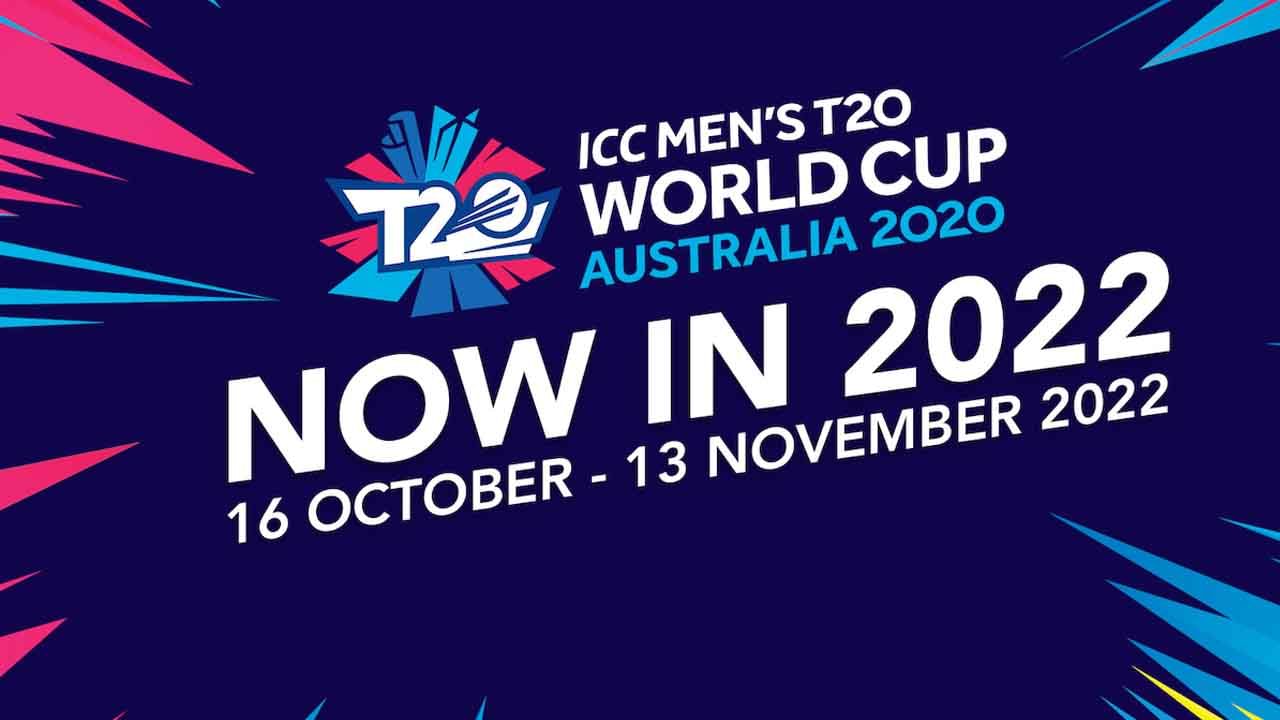 Lancashire have suffered a blow ahead of their Friends Life t20 campaign after they confirmed Junaid Khan, the Pakistan left-arm quick bowler, would not take up his deal with the club due to international commitments.
Lancashire have suffered a blow ahead of their Friends Life t20 campaign after they confirmed Junaid Khan, the Pakistan left-arm quick bowler, would not take up his deal with the club due to international commitments. Pakistan Super League 2022
2022 Pakistan Super League is the seventh season of the Pakistan Super League, a franchise Twenty20 cricket league which was established by the Pakistan Cricket Board in 2015. The league began on 27 January 2022, with the final scheduled to take place on 27 February.
ICC Announced Schedule of 2022 ICC T20 World Cup 2022.
The International Cricket Council has announced the schedule for the 2022 ICC T20 World Cup 2022. Accordingly, the mini-World Cup to be held in Australia will take place on October 16
This is default featured slide 3 title
Go to Blogger edit html and find these sentences.Now replace these sentences with your own descriptions.This theme is Bloggerized by Lasantha Bandara - Premiumbloggertemplates.com.
This is default featured slide 4 title
Go to Blogger edit html and find these sentences.Now replace these sentences with your own descriptions.This theme is Bloggerized by Lasantha Bandara - Premiumbloggertemplates.com.
This is default featured slide 5 title
Go to Blogger edit html and find these sentences.Now replace these sentences with your own descriptions.This theme is Bloggerized by Lasantha Bandara - Premiumbloggertemplates.com.
20 May 2012
Lancashire lose Junaid's services
 Lancashire have suffered a blow ahead of their Friends Life t20 campaign after they confirmed Junaid Khan, the Pakistan left-arm quick bowler, would not take up his deal with the club due to international commitments.
Lancashire have suffered a blow ahead of their Friends Life t20 campaign after they confirmed Junaid Khan, the Pakistan left-arm quick bowler, would not take up his deal with the club due to international commitments. England finally shift Chanderpaul

PCB chief invited to IPL final

RCB crash out, Chennai through Play offs
 Dale Steyn's first three overs and Virat Kohli's rush of blood, to name a few. Steyn was unplayable with figures of 4-0-8-3, but crucially, he found support from the slower bowlers. Amit Mishra took two in an over to set Royal Challengers back and Ashish Reddy frustrated the batsmen with slower balls in the final stages. Gayle tried to make room by moving towards leg and bottom edged another fast short ball on to his stumps. Steyn then had Tillakaratne Dilshan lbw in his next over, and Royal Challengers were 40 for 2 when Saurabh Tiwary retired hurt after straining a hamstring in the sixth.
Dale Steyn's first three overs and Virat Kohli's rush of blood, to name a few. Steyn was unplayable with figures of 4-0-8-3, but crucially, he found support from the slower bowlers. Amit Mishra took two in an over to set Royal Challengers back and Ashish Reddy frustrated the batsmen with slower balls in the final stages. Gayle tried to make room by moving towards leg and bottom edged another fast short ball on to his stumps. Steyn then had Tillakaratne Dilshan lbw in his next over, and Royal Challengers were 40 for 2 when Saurabh Tiwary retired hurt after straining a hamstring in the sixth.Steyn, Duminy help Deccan knock out RCB

PCB to confirm Australia series venue next week

19 May 2012
West Indies stumble after bowling fightback

Recent record gives Pakistan edge over Sri Lanka - Misbah

Delhi knock out Punjab and take top spot

18 May 2012
Shah Rukh Khan gets five-year ban from Wankhede

IPL 2012 Points Table
| Teams | Mat | Won | Lost | Tied | N/R | Pts | Net RR |
|---|---|---|---|---|---|---|---|
| Daredevils | 15 | 10 | 5 | 0 | 0 | 20 | +0.599 |
| KKR | 15 | 9 | 5 | 0 | 1 | 19 | +0.478 |
| Mum Indians | 15 | 9 | 6 | 0 | 0 | 18 | -0.160 |
| Super Kings | 16 | 8 | 7 | 0 | 1 | 17 | +0.100 |
| RCB | 15 | 8 | 6 | 0 | 1 | 17 | +0.010 |
| Kings XI | 15 | 8 | 7 | 0 | 0 | 16 | -0.172 |
| Royals | 14 | 7 | 7 | 0 | 0 | 14 | +0.335 |
| Warriors | 15 | 4 | 11 | 0 | 0 | 8 | -0.477 |
| Chargers | 14 | 2 | 11 | 0 | 1 | 5 | -0.680 |
Broad completes career-best haul

Kenya matches postponed due to security fears
Vusi Sibanda makes a comeback in Zimbabwe squad

Ajantha Mendis named in Sri Lanka provisional squad
Sri Lanka provisional squad
- Mahela Jayawardene, Tillakaratne Dilshan, Kumar Sangakkara, Tharanga Paranavitana, Lahiru Thirimanne, Upul Tharanga, Dinesh Chandimal, Thilan Samaraweera, Prasanna Jayawardene, Chamara Silva, Chamara Kapugedera, Angelo Mathews, Thisara Perera, Farveez Maharoof, Isuru Udana, Lasith Malinga, Nuwan Kulasekara, Chanaka Welegedera, Suranga Lakmal, Dhammika Prasad, Shaminda Eranga, Dilhara Fernando, Nuwan Pradeep, Suraj Randiv, Rangana Herath, Sachitra Senanayake, Ajantha Mendis, Dilruwan Perera, Jeevan Mendis, Kaushal Lokuarachchi
Lorgat eyes top CSA role

Multiple coaches a possibility for New Zealand - White

McDermott's legacy must be maintained

Jurgensen named Bangladesh's interim head coach
Bangladesh included in Zimbabwe tri-series

IPL can't duck the F-word Penalising players is not enough; it's time to pull up and rein in the franchises
| Rules have been changed as the IPL has gone along: without warning, the retention clause was brought in, as opposed to all players going back into a public auction | |||
No pay for players following Toronto All Star T20
mark boucher @markb46
Absolute shambles at @T20AllStar2012 in Canada.no players been paid.no organisers here to explain!disgrace for Canadian cricket!so sad!14 May 12
Gayle ton delivers crucial win for Bangalore

Pomersbach detained over alleged assault

IPL 'missed opportunity' for Pakistan players - Hafeez

Chanderpaul defiant despite Broad sweep

Smart stats
|
17 May 2012
Gilchrist pushes Chennai to the brink


















